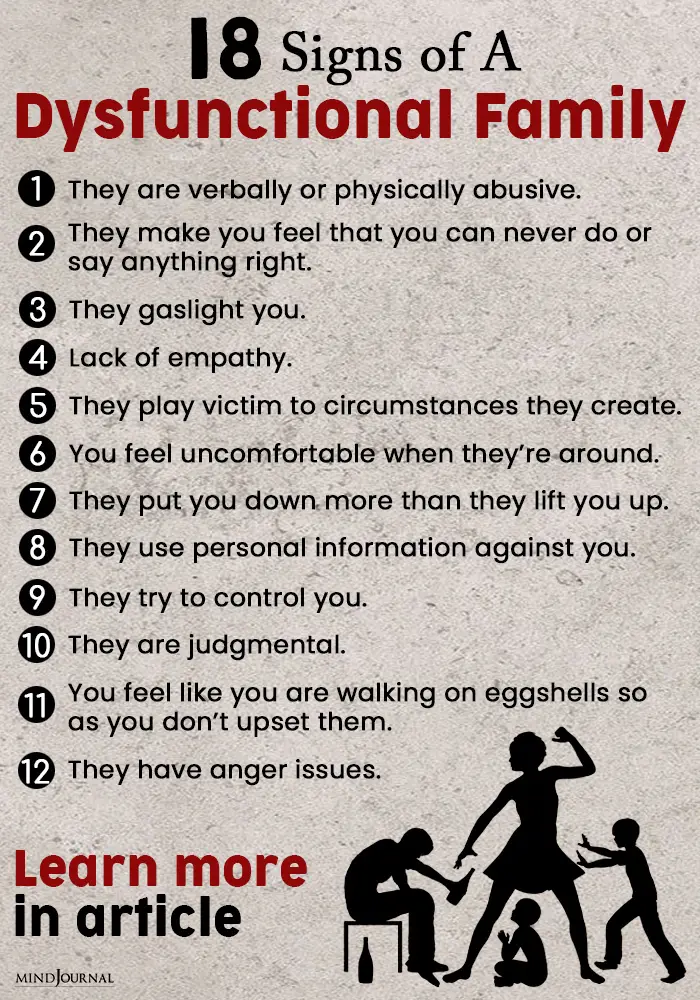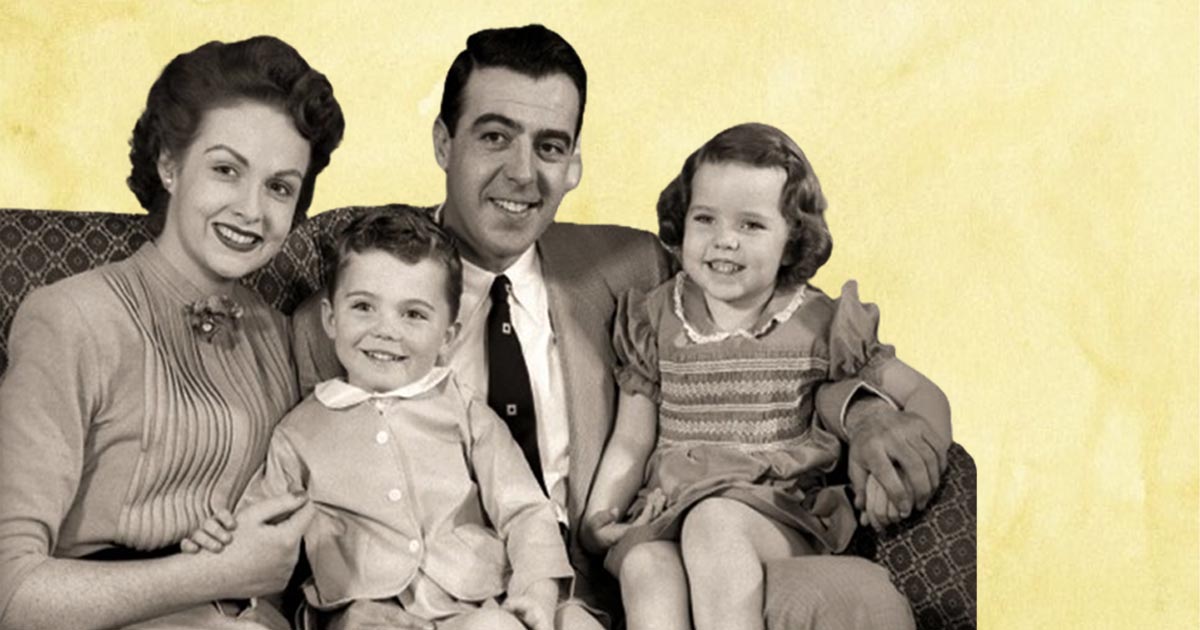Many people experience challenges within their families that affect their feelings and relationships with others. These problems often come from certain patterns or behaviors that are not healthy.
Recognizing the dysfunctional family traits is an important step in making things better.

In this article, we discuss five common issues found in families that face these challenges. As we explore the traits, signs, and ways to handle difficult family dynamics, remember that positive change is achievable.
The journey toward a healthier family life starts with awareness, understanding, and a dedication to improving both personal and collective well-being.
5 Common Dysfunctional Family Traits
Dysfunctional family traits can impact individuals, affecting their emotional well-being and interpersonal relationships. Understanding these traits is essential for identifying and addressing family dynamics that may be harmful or unhealthy.
1. Lack of Communication:
Effective communication is vital for healthy family relationships. One of the common dysfunctional family traits is the lack of communication between family members.
In dysfunctional families, communication breakdowns often occur. Members may struggle to express their thoughts and feelings openly, leading to misunderstandings and unresolved conflicts. This lack of communication can create tension and resentment within the family unit.
2. Unresolved Conflict:
Dysfunctional families frequently experience unresolved conflicts that linger over time. Instead of addressing issues directly, members may avoid confrontation or resort to unhealthy coping mechanisms such as denial or blame-shifting. These unresolved conflicts can erode trust and intimacy within the family, perpetuating a cycle of dysfunction.
3. Confusion of Roles Within The Family
Clear roles and boundaries are essential for maintaining balance within a family. In dysfunctional families, roles may be ambiguous or rigidly enforced, leading to confusion and resentment among members. For example, a parent may expect a child to fulfill responsibilities beyond their age or capabilities, resulting in undue stress and dysfunction.
4. Emotional Neglect:
Emotional neglect occurs when family members fail to provide adequate support, validation, or affection to one another. In dysfunctional families, emotional needs may be overlooked or dismissed, leaving individuals feeling unloved or unseen. This neglect can have long-lasting effects on self-esteem and emotional well-being, contributing to a cycle of dysfunction in future relationships.
5. Enmeshment or Disengagement:
Dysfunctional families often exhibit extremes in relational patterns, becoming overly enmeshed or disengaged. Enmeshed families are characterized by overly close relationships and a lack of individual autonomy.
Conversely, disengaged families may exhibit emotional distance and detachment, hindering genuine connection and intimacy among members.
Recognizing common dysfunctional family traits is the first step toward addressing and overcoming unhealthy dynamics. By fostering open communication, resolving conflicts, establishing clear roles and boundaries, addressing emotional needs, and finding a balance between enmeshment and disengagement.
Read More: What Is Dysfunctional Family and 5 Powerful Strategies To Recover!
5 Signs Of A Dysfunctional Family You Should Know
Recognizing the signs of a dysfunctional family is crucial for addressing underlying issues and fostering healthier dynamics.

By understanding these signs, individuals can take steps to improve communication, establish boundaries, and promote emotional well-being within the family unit.
1. Absence of a Supportive Environment:
In families that are dysfunctional, emotional support and encouragement may be scarce. Rather than driving one another, family members might decide to belittle or criticize each other’s effort and victories. This lack of support can lead to feelings of isolation and inadequacy, hindering the development and personal growth.
2. Conflict is Constant:
Frequent brawls that never see resolutions is an indication that there is a dysfunction within the family. Instead of engaging in dialogue like matured people would do to address issues, members might choose to shout at each other, engage in passive-aggressive acts or just avoid each other all together. All this creates tension and instability within the family making it hard for trust and harmony to exist.
3. Emotional Distance:
For someone who has grown up in a toxic family environment will find it difficult to make connections with others when they grow older since they have spent their lives without connection too. Members tend not to communicate openly with one another leaving someone feeling lonely.
4. Lack of Boundaries:
Healthy families have clear boundaries between individuals which allows them respect for privacy as well as autonomy. However in dysfunctional families those boundaries may be blurred making it easy for members to interfere with personal space or emotions without any consent or regard for privacy granted.
5. Role Reversal
Due to neglect from parents you will find children doing responsibilities usually done by parents or caregivers hence reversing roles.This could also happen due addiction or mental health issues forcing kids fend for themselves emotionally and physically thus hindering their development and well-being
Read More: What Is A Toxic Family And Signs You Grew Up In A Toxic Family
How To Deal With A Dysfunctional Family
Learning how to deal with a dysfunctional family can be challenging, but there are strategies you can implement to navigate these dynamics and promote healthier relationships.

Here are ten expert-backed tips to help you deal with a dysfunctional family.
1. Establish Boundaries:
Setting clear boundaries is crucial for protecting your emotional well-being in a dysfunctional family.
According to psychologist Dr. Susan Forward, author of “Toxic Parents,” boundaries define what behavior is acceptable and unacceptable in your interactions with family members.
Communicate your boundaries assertively and consistently, and be prepared to enforce them if necessary.
2. Practice Self-Care:
Taking care of yourself is essential when dealing with a dysfunctional family. Licensed therapist Dr. Julie Hanks recommends prioritizing self-care activities such as exercise, meditation, and hobbies that bring you joy.
Make time for activities that recharge your batteries and provide a respite from family stressors.
3. Seek Support:
Don’t hesitate to reach out for support from friends, other family members, or a therapist. Family therapist Dr. Claudia Black emphasizes the importance of finding a supportive network outside of your dysfunctional family.
Talking to a trusted confidant can provide validation, perspective, and guidance as you navigate challenging family dynamics.
4. Set Realistic Expectations:
Accept that you may not be able to change your family members or the dysfunctional patterns within your family. Dr. Jonice Webb, psychologist and author of “Running on Empty,” advises setting realistic expectations for yourself and your interactions with family members. Focus on what you can control, such as your own reactions and boundaries.
5. Practice Effective Communication:
One of the common dysfunctional family traits is the lack of communication between family members.
Effective communication is key to addressing conflicts and fostering understanding within a dysfunctional family. Marriage and family therapist Dr. John Gottman recommends using “I” statements to express your feelings and needs without blaming or criticizing others.
Practice active listening, empathy, and validation to promote open and respectful dialogue.
6. Set Healthy Boundaries:
Establishing and maintaining healthy boundaries is crucial for protecting your well-being in a dysfunctional family. Clinical psychologist Dr. Henry Cloud, co-author of “Boundaries: When to Say Yes, How to Say No,” emphasizes the importance of setting limits on what you will and will not tolerate from family members.

Be firm in enforcing your boundaries, even if it means saying no or distancing yourself from toxic behavior.
7. Do some forgiveness.
Forgiveness can be very hard to do but it’s worth doing if you’re dealing with a dysfunctional family. Dr. Fred Luskin, a psychologist and author of the book “Forgive for Good,” believes practicing forgiveness will help you release anger and resentment towards those in your family.
It’s important to remember that forgiving them doesn’t mean what they did is okay. You’re doing it to free yourself from that burden.
8. Focus on what you can control.
When dealing with a dysfunctional family, one of the most important things you can do is focus on what you can control rather than trying to change others. Dr. Viktor Frankl, a psychologist and author of the book “Man’s Search for Meaning,” thinks finding meaning and purpose in your own life is crucial while being independent from your family.
Focus on other stuff like personal growth, goals, and relationships outside your family to cultivate a sense of autonomy and fulfillment.
9. Set healthy boundaries.
Establishing healthy boundaries is key to protecting yourself from the dysfunction that takes place within your family. Clinical psychologist Dr. Henry Cloud said its super important that you set limits about what behavior you will tolerate from those people in your home or not.
Even if it means saying no or distancing yourself from toxic behavior then do it!
10.Seek therapy
If nothing seems to work at all then I would recommend seeking professional help like therapy if possible! The therapist will give you some tools to understand why this is happening in hopes that they’ll develop coping strategies and heal from past trauma.
A good therapist should provide support as well as guidance when guiding through these complex relationships between loved ones
Read More: What Is Gentle Parenting Meaning? 5 Effective Tips For Parents To Master It.
A Word From Mind Family
As the Mind Family, we understand the significance of recognizing these common traits and signs. By fostering open communication, resolving conflicts, setting clear boundaries, addressing emotional needs, and finding a balance between enmeshment and disengagement, we can pave the way for healing and growth.
Seeking support, practicing self-care, and setting realistic expectations are essential tools when fighting against dysfunctional family traits.
Learning how to deal with a dysfunctional family, the Mind Family encourages the practice of effective communication, forgiveness, and focusing on personal growth. By implementing these expert-backed tips, individuals can fortify their resilience, protect their well-being, and foster healthier relationships within the family unit.
Frequently Asked Questions (FAQs)
1. What are some common dysfunctional family traits?
Common dysfunctional family traits include lack of communication, unresolved conflict, role confusion, emotional neglect, and enmeshment or disengagement among family members.
2. What are the common signs of a dysfunctional family?
Signs of a dysfunctional family include a lack of a supportive environment, constant conflict, emotional distance, lack of boundaries, and role reversal within the family dynamic.
3. How to deal with a dysfunctional family?
Learning how to deal with a dysfunctional family involves setting boundaries, practicing self-care, seeking support, setting realistic expectations, practicing effective communication, and considering therapy as recommended by experts in the field.











